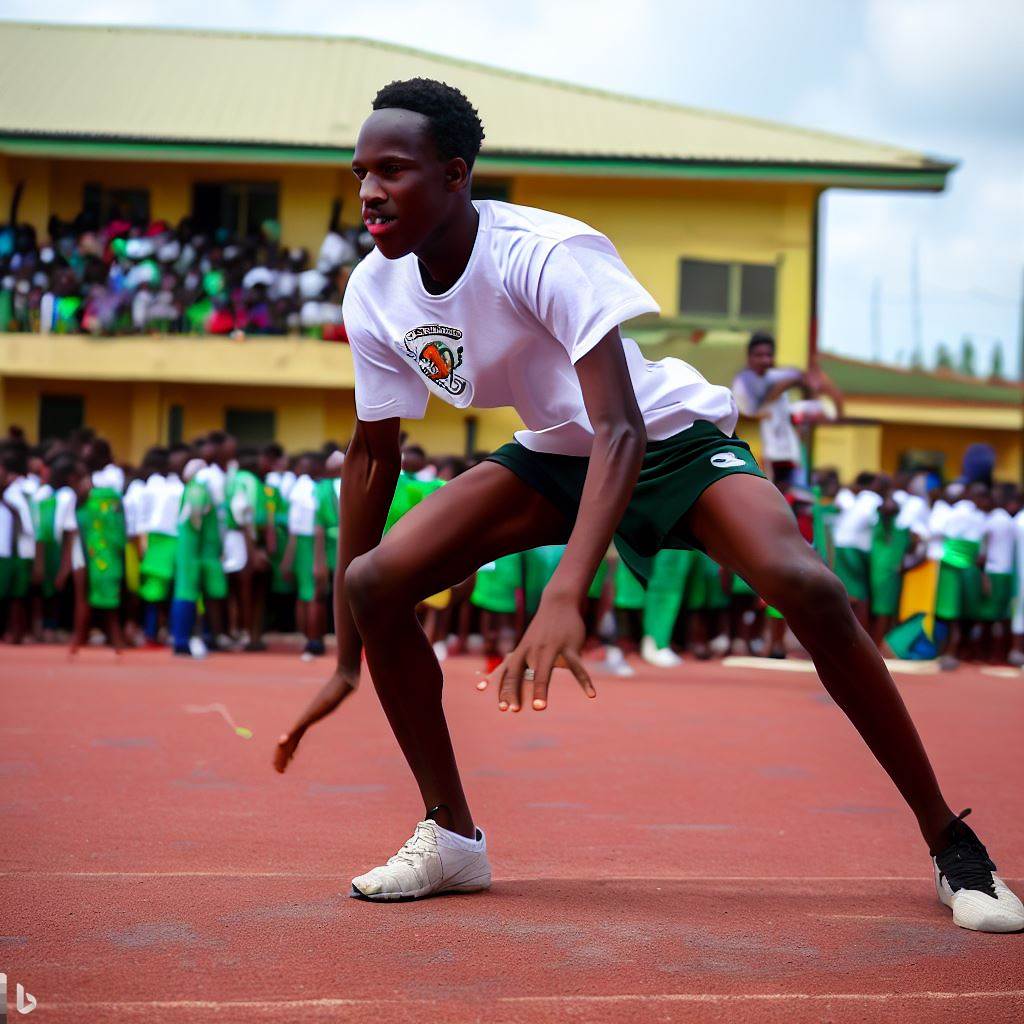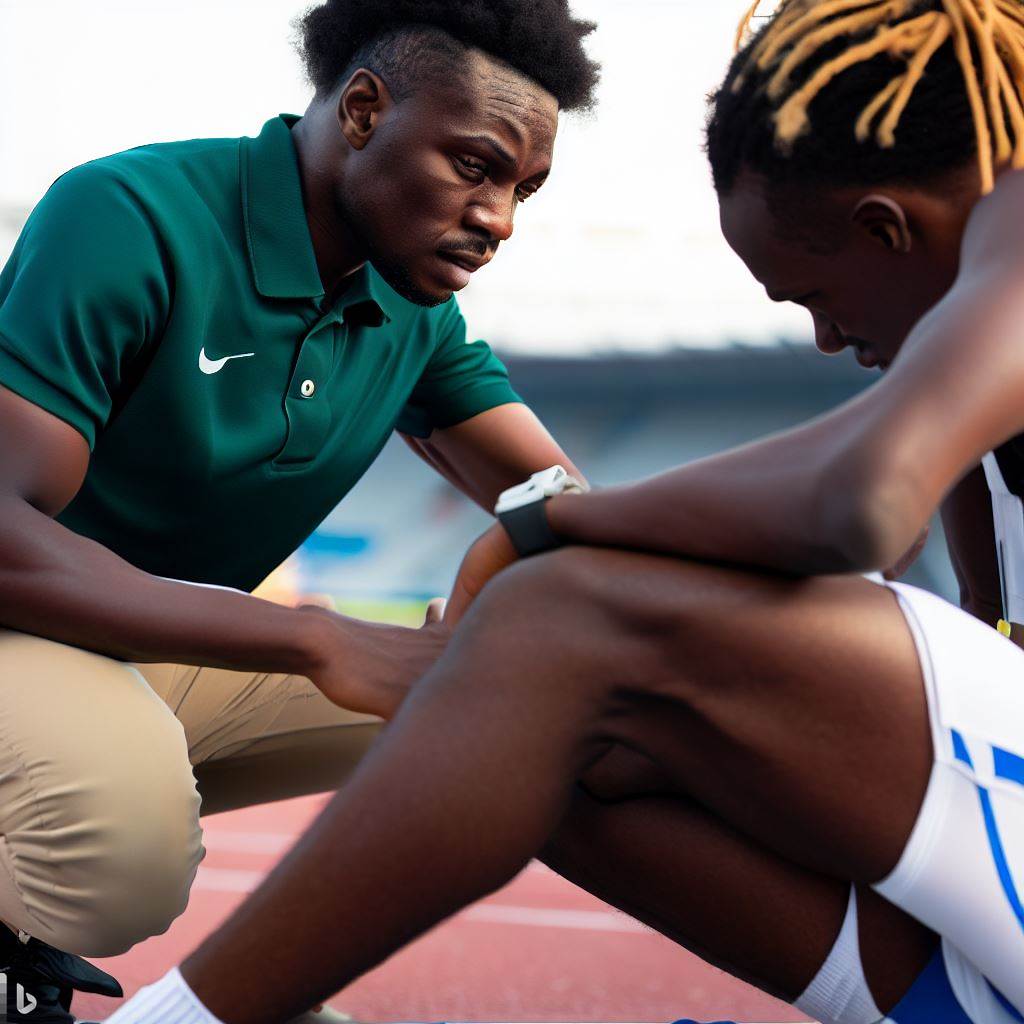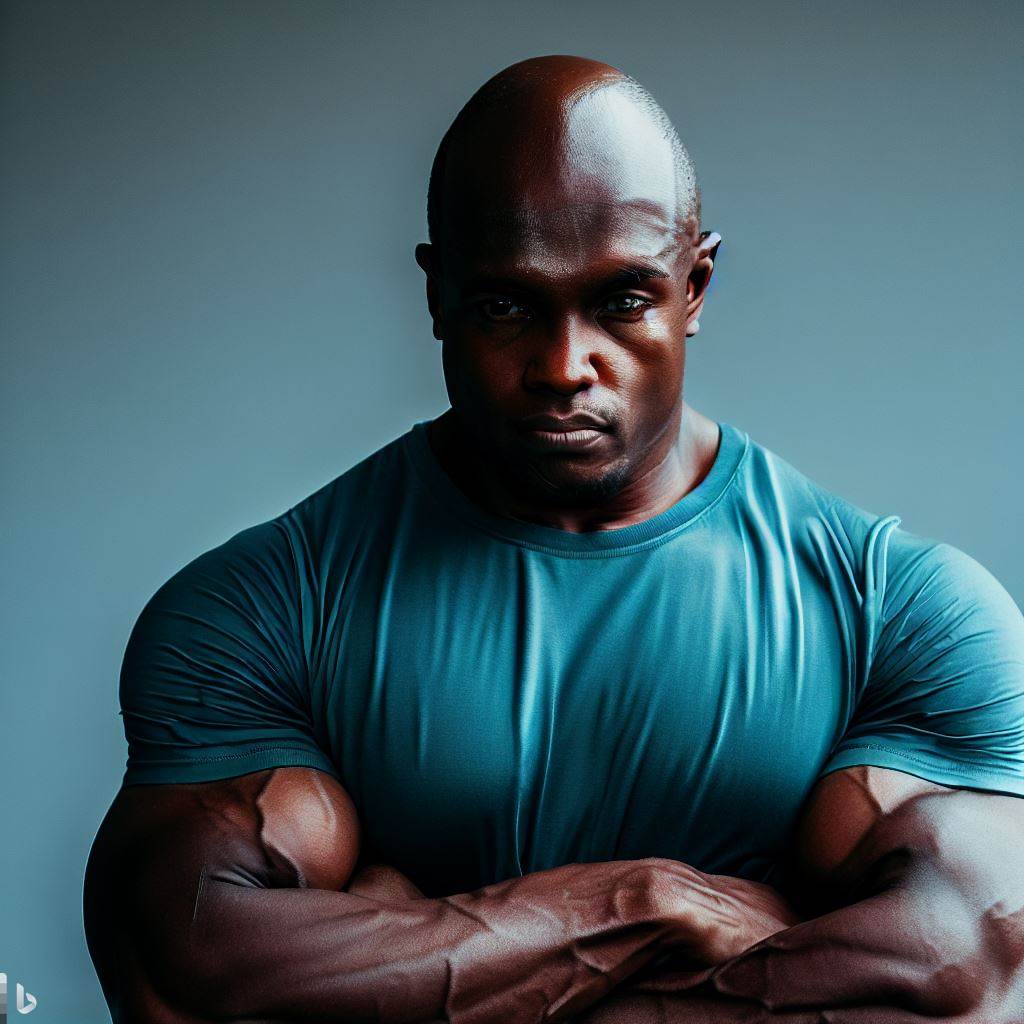Introduction
- Physical fitness standards in the Nigerian education system play a vital role in the overall development of students.
- Physical fitness is crucial for students as it enhances their physical and mental well-being.
- In this blog post, we will discuss the significance of physical fitness standards in the Nigerian education system and cover various aspects such as the current state, benefits, challenges, and potential solutions.
Physical fitness standards in the Nigerian education system have garnered increasing attention in recent years.
Importance of Physical Fitness for Students
- Enhances Overall Health: Regular physical activity contributes to improved cardiovascular health and reduces the risk of chronic diseases.
- Boosts Mental Well-being: Exercise releases endorphins, reducing stress and anxiety, and enhancing mental clarity.
- Academic Performance: Fit students tend to have better concentration and cognitive abilities, leading to improved academic results.
- Social Skills: Participation in physical activities fosters teamwork, communication, and leadership skills.
- Healthy Habits: Encouraging physical fitness in schools establishes a foundation for lifelong healthy habits.
Purpose of the Blog
This blog aims to shed light on the significance of incorporating physical fitness standards into the Nigerian education system.
What Will Be Covered:
- The current state of physical fitness standards in Nigerian schools.
- Benefits of implementing robust physical fitness programs.
- Challenges and potential solutions for integrating fitness into the curriculum.
- Successful case studies from schools that have prioritized physical fitness.
- Recommendations for parents, teachers, and policymakers to promote physical fitness.
In a nation where education plays a pivotal role in shaping the future, it’s crucial to recognize that physical fitness is not just about athleticism but also about nurturing healthy, well-rounded individuals who can thrive academically and socially.
Stay tuned for insights, strategies, and success stories in upcoming posts.
Overview of the Nigerian Education System
Background on the Nigerian education system
The Nigerian education system is divided into three levels: basic, secondary, and tertiary education.
It is overseen by the Federal Ministry of Education and includes both public and private schools.
Education in Nigeria is compulsory for the first nine years, which includes primary and junior secondary education.
The educational system is based on the British model due to Nigeria’s colonization history by the British.
The curriculum and subjects taught
The Nigerian curriculum covers a wide range of subjects such as mathematics, English, sciences, social studies, and languages.
At the secondary level, students choose between science, arts, or commercial subjects based on their interests and abilities.
Subjects like physics, biology, chemistry, literature, economics, and history are a part of the curriculum.
The curriculum is designed to provide students with a broad-based education that equips them with essential knowledge and skills.
Current emphasis on academics rather than physical fitness
Unfortunately, the emphasis in the Nigerian education system is largely on academics, often neglecting physical fitness.
Physical education is not given much importance and is not compulsory in most schools. There is a lack of facilities, trained teachers, and resources dedicated to promoting physical fitness.
As a result, many students are not encouraged to participate in physical activities and adopt a sedentary lifestyle.
This lack of emphasis on physical fitness has adverse effects on the overall health and well-being of students.
Reasons for Neglecting Physical Fitness in Nigerian Schools
- Limited awareness about the importance of physical fitness in overall development.
- Insufficient funds allocated to physical education programs and facilities.
- Lack of trained physical education teachers to promote physical activities.
- Academic pressure and the focus on exam results overshadow other aspects of education.
- Cultural beliefs that prioritize academic achievements over physical fitness.
- Limited availability of sports equipment and facilities, particularly in rural areas.
Impact of Neglecting Physical Fitness in Nigerian Education System
- Increase in sedentary lifestyles leading to health problems such as obesity and cardiovascular diseases.
- Lack of team building, leadership skills, and social interaction among students.
- Decreased cognitive abilities and concentration, affecting academic performance.
- Missed opportunities to identify and develop sporting talents among students.
- Overall decline in the physical and mental well-being of students.
Potential Solutions to Promote Physical Fitness in Nigerian Education System
- Introduce mandatory physical education classes in all schools, emphasizing the importance of regular exercise.
- Allocate more funds to improve sports facilities and provide necessary equipment.
- Train teachers in physical education and encourage them to organize sports events and competitions.
- Collaborate with sports associations and organizations to offer coaching and mentorship programs.
- Raise awareness among parents, students, and the community about the benefits of physical fitness.
While the Nigerian education system focuses primarily on academics, it is crucial to recognize the importance of physical fitness.
Promoting physical education in schools can enhance students’ overall well-being, cognitive abilities, and academic performance.
By implementing necessary changes and prioritizing physical fitness, Nigeria can develop a healthier and well-rounded generation.
Read: Working Conditions of Athletic Trainers in Nigeria: A Survey
Physical fitness standards in Nigerian schools
Existing physical fitness standards, if any
- Physical fitness is an important aspect of education in Nigeria.
- However, there is currently no standardized set of physical fitness standards.
- Each school is left to develop its own guidelines for assessing students’ physical fitness.
- These guidelines typically include assessments for strength, endurance, flexibility, and body composition.
- Some schools also incorporate assessments for cardiovascular fitness and motor skills.
- These standards aim to ensure that students develop and maintain a basic level of physical fitness.
- However, without a uniform set of standards, there may be inconsistencies in how physical fitness is assessed.
Criteria used to assess students’ physical fitness levels
- The criteria used to assess students’ physical fitness levels vary among schools.
- Common assessments include the number of push-ups or sit-ups a student can do in a set time.
- Other criteria include the distance a student can run within a certain time frame.
- Flexibility is often assessed through tests such as the sit and reach exercise.
- Body composition assessments may involve measuring body mass index (BMI) or body fat percentage.
- Motor skills assessments may include tasks such as throwing, catching, or jumping.
- Overall, these criteria aim to provide a holistic assessment of students’ physical fitness levels.
Uniformity of these standards across different regions of Nigeria
- The existing physical fitness standards are not uniform across different regions of Nigeria.
- Some regions may have more comprehensive and strict standards, while others may have none at all.
- This lack of uniformity leads to disparities in physical fitness education among students.
- Students from regions with lower standards may not receive adequate physical fitness training.
- There is a need for a national effort to develop and implement standardized physical fitness standards.
- This would ensure that all students, regardless of their region, receive a quality physical fitness education.
- Uniform standards would also enable more accurate comparisons and assessments of students’ fitness levels nationally.
In essence, the physical fitness standards in Nigerian schools vary widely, with each school having its own guidelines.
These guidelines assess students’ physical fitness levels through a range of criteria, including strength, endurance, flexibility, body composition, cardiovascular fitness, and motor skills.
However, these standards are not uniform across different regions of Nigeria, leading to disparities in physical fitness education.
It is crucial to develop and implement standardized physical fitness standards nationwide to ensure that all students receive a quality physical fitness education and to enable accurate comparisons of fitness levels nationally.
Read: International Opportunities for Athletic Trainers from Nigeria
Impact of physical fitness on students’ health and academic performance
The benefits of regular physical activity for students’ physical and mental health
Regular physical activity has numerous benefits for students’ overall health and well-being.
Engaging in physical exercise helps in maintaining a healthy weight, improving cardiovascular health, and enhancing muscle strength and endurance.
It also boosts the immune system, reducing the risk of developing chronic diseases such as obesity, diabetes, and heart conditions.
Additionally, physical activity has a positive impact on students’ mental health. Regular exercise releases endorphins, which are known as the “feel-good” hormones.
This leads to improved mood, reduced stress, and increased feelings of happiness and relaxation. Physical activity can also alleviate symptoms of anxiety and depression.
Furthermore, participation in physical activities provides opportunities for social interaction and can help students build confidence and self-esteem.
Studies or research that link physical fitness with improved academic performance
Research has consistently shown a positive correlation between physical fitness and academic performance.
Studies have found that students who engage in regular physical activity perform better in academic subjects, including math, science, and language arts.
One study conducted by the Centers for Disease Control and Prevention (CDC) revealed that students who met the recommended levels of physical activity had significantly higher test scores in reading and math compared to their inactive peers.
Another study published in the Journal of Pediatrics found that higher levels of physical fitness were associated with better cognitive performance and attention span in students.
These findings indicate that physical fitness enhances brain function and cognitive abilities, which are essential for academic success.
Regular physical activity improves blood flow and oxygen delivery to the brain, promoting neuroplasticity and the formation of new neural connections.
It also enhances memory, concentration, and problem-solving skills.
Consequences of neglecting physical fitness in the education system
Neglecting physical fitness in the education system can have serious consequences on students’ health and academic performance.
Without regular physical activity, students are at a higher risk of developing sedentary lifestyles, obesity, and related health issues.
Lack of physical fitness can negatively impact students’ ability to concentrate and learn effectively.
Studies have found that students who are physically inactive often experience decreased cognitive function, reduced attention span, and difficulties in memory retention.
This can ultimately lead to decreased academic performance.
Furthermore, neglecting physical fitness can contribute to an unhealthy school environment, promoting an inactive lifestyle and perpetuating the cycle of poor health habits.
It also limits opportunities for social interaction and physical development.
In summary, promoting physical fitness in the Nigerian education system is crucial for enhancing students’ health and academic performance.
Regular physical activity provides numerous benefits, including improved physical and mental health. Research has shown a positive correlation between physical fitness and academic success.
Neglecting physical fitness can have detrimental effects on students’ overall well-being and hinder their educational outcomes.
Therefore, incorporating physical fitness standards and activities into the education system is essential for ensuring the holistic development of Nigerian students.
Read: Trends and Innovations in PE Teaching in Nigeria

Challenges and limitations in implementing physical fitness standards
Obstacles faced by schools in implementing physical fitness standards
- Limited funding and budget constraints pose a significant obstacle for schools.
- Lack of awareness among school administrators about the importance of physical fitness.
- Inadequate resources and infrastructure to support physical fitness programs.
- Limited time allocated for physical education due to extensive academic curriculum.
- Resistance from teachers and parents who undervalue the significance of physical fitness.
- Insufficient training and knowledge among teachers to effectively implement fitness standards.
- Inconsistent policies and guidelines from the government regarding physical fitness in schools.
- High student-to-teacher ratio, making it challenging to provide individualized attention.
- Lack of collaborative efforts between schools and community organizations to promote physical fitness.
- Inadequate assessment and evaluation methods to measure the effectiveness of fitness programs.
Lack of facilities, equipment, and trained teachers for physical education
The insufficient availability of suitable facilities, equipment, and trained teachers impedes the implementation of physical fitness standards in Nigerian schools.
Many schools lack proper sports fields, playgrounds, or gyms, making it difficult for students to engage in sports activities.
This lack of infrastructure limits the opportunities for children to participate in physical exercises and develop their fitness levels.
Additionally, the scarcity of appropriate equipment, such as sports gear or exercise apparatus, hampers the effectiveness of physical education classes.
Without adequate equipment, students are unable to engage in a diverse range of activities, limiting their exposure to various forms of exercise.
This restriction inhibits their overall physical development and understanding of different fitness disciplines.
Moreover, the shortage of trained teachers specialized in physical education further complicates the implementation of fitness standards.
The existing curriculum often places greater emphasis on academic subjects, leading to a scarcity of qualified physical education teachers.
Consequently, schools rely on regular classroom teachers who may not have sufficient knowledge or expertise in physical fitness training.
This lack of specialized instructors hinders the effective guidance and supervision necessary to address individual student needs and foster a lifelong passion for physical activity.
Cultural and societal factors that influence the prioritization of physical fitness
Various cultural and societal factors in Nigeria contribute to the challenges faced in prioritizing physical fitness within the education system.
In many Nigerian communities, there is a predominant focus on academic achievements as the primary measure of success.
This emphasis on intellectual prowess often results in physical fitness taking a back seat in educational priorities.
Furthermore, cultural norms and expectations may discourage certain physical activities, particularly for girls.
Traditional beliefs or societal stereotypes may discourage females from participating in sports or other physically challenging endeavors.
This perpetuates a gender disparity in physical fitness opportunities and restricts the overall promotion of fitness within the education system.
Moreover, socio-economic disparities also play a role in limiting access to physical fitness opportunities.
Families from disadvantaged backgrounds may struggle to afford sports equipment or enrollment in extracurricular activities that promote physical fitness.
This lack of financial means further perpetuates the inequality in access to physical fitness options, hindering the implementation of standardized fitness standards across all schools.
In a nutshell, the implementation of physical fitness standards in the Nigerian education system faces various challenges and limitations.
Limited funding, lack of facilities and trained teachers, as well as cultural and societal factors, all hinder the successful integration of physical fitness into schools.
Addressing these obstacles requires a multi-faceted approach involving increased funding, infrastructure development, specialized training for educators, and a shift in cultural attitudes towards physical fitness.
By recognizing and overcoming these challenges, Nigeria can promote a healthier and more physically active generation of students.
Read: Benefits of Becoming an Athletic Trainer in Nigeria
Successful strategies and initiatives promoting physical fitness
Schools and organizations implementing effective physical fitness programs
- Landmark School in Lagos introduced a daily exercise routine for students, including running and aerobics.
- Kinetic Sports Club conducts after-school sports programs that focus on improving fitness levels among children.
- HealthWise Foundation organizes community events, such as marathons and fitness expos, to promote a healthy lifestyle.
Government initiatives or policies aimed at improving physical fitness standards
- The Ministry of Education introduced mandatory physical education classes in all primary and secondary schools.
- The National Fitness Initiative provides grants to schools for the development of sports facilities and equipment.
- The Fit Nigeria campaign promotes awareness of physical fitness and encourages participation in active sports.
Success stories and outcomes of these strategies/programs
- Landmark School reported a decrease in obesity rates among students and an overall improvement in their academic performance.
- Kinetic Sports Club witnessed an increase in the number of children actively participating in sports and improving their physical fitness.
- HealthWise Foundation’s community events have inspired many individuals to adopt a healthier lifestyle and incorporate regular exercise in their daily routine.
Physical fitness is integral to a well-rounded education system in Nigeria. Landmark School in Lagos exemplifies this with daily exercise routines, reducing obesity and enhancing academics.
The Kinetic Sports Club’s after-school programs boost youth participation in sports and fitness.
Government initiatives, like mandatory physical education classes and grants for sports facilities, promote physical fitness at the primary and secondary school levels.
The Fit Nigeria campaign, led by the HealthWise Foundation, spreads awareness and encourages active lifestyles through workshops and community events.
These efforts have yielded remarkable results. Landmark School’s initiatives improved student health and academic performance while reducing obesity rates.
The Kinetic Sports Club not only increased fitness levels but also instilled vital life skills in children.
Community events by the HealthWise Foundation have inspired individuals to adopt healthier lifestyles, fostering a sense of community.
Successful strategies and government policies in Nigeria have reduced obesity rates, improved overall well-being, and enhanced fitness levels.
Promoting physical fitness among students and the broader community should remain a top priority, ensuring a healthy and active future generation in Nigeria.
Recommendations for improving physical fitness standards
Physical fitness plays a crucial role in the overall development and well-being of individuals, particularly students.
Unfortunately, the current physical fitness standards in the Nigerian education system are inadequate and require significant improvement. In order to address this issue, several recommendations can be made.
Solutions to address the challenges in implementing physical fitness standards
- Increase Awareness: The first step towards improving physical fitness standards is to create awareness among stakeholders, including educators, parents, and government officials, about the importance of physical fitness.
- Training Programs for Teachers: Teachers should receive specialized training to equip them with the knowledge and skills necessary to effectively implement physical fitness standards in schools.
- Adequate Facilities and Equipment: Schools should be provided with appropriate facilities and equipment to enable students to engage in various physical activities and sports.
- Monitoring and Evaluation: Regular monitoring and evaluation of students’ physical fitness levels should be conducted to track progress and identify areas for improvement.
Ways to integrate physical fitness into the existing curriculum
- Incorporate Physical Education: Physical education should be made a compulsory subject in the curriculum, with dedicated time slots for students to participate in physical activities.
- Integration with Other Subjects: Physical fitness can be integrated with other subjects, such as science and mathematics, to provide students with a holistic understanding of its importance.
- Extracurricular Activities: Encourage schools to organize extracurricular activities that promote physical fitness, such as sports tournaments, dance performances, and outdoor adventures.
- Active Learning Strategies: Incorporate active learning strategies, such as hands-on experiments and group activities, that require physical movement and engagement.
Collaboration between schools, government, parents, and communities to promote physical fitness
- Awareness Campaigns: Collaborate with government bodies, schools, parents, and communities to launch awareness campaigns on the benefits of physical fitness and the importance of its integration into the education system.
- Public-Private Partnerships: Seek partnerships with private organizations and fitness experts to provide resources, expertise, and funding for the improvement of physical fitness standards in schools.
- Parental Involvement: Encourage parents to actively participate in their child’s physical fitness journey by supporting and promoting physical activities at home and in the community.
- Community Involvement: Engage local communities in organizing fitness events and promoting a culture of physical activity, such as community sports days and wellness fairs.
Ultimately, improving physical fitness standards in the Nigerian education system is essential for the overall development of students.
Publish Your Professional Profile, Business or Brand
Showcase your expertise, gain trust, and boost visibility instantly on Professions.ng.
Publish NowBy proposing solutions to address implementation challenges, integrating physical fitness into the curriculum, and advocating for collaboration between schools, government, parents, and communities, a significant positive change can be brought about.
It is crucial to prioritize the physical well-being of students and provide them with opportunities to develop a healthy lifestyle from a young age.
Conclusion
- The main points discussed in this blog post highlight the inadequate physical fitness standards in the Nigerian education system.
- It is imperative to reinforce the importance of physical fitness in the Nigerian education system as it directly impacts students’ overall well-being and academic performance.
- It is essential to encourage further discussions and take concrete actions to improve physical fitness standards in Nigeria, ensuring a healthier and more active future for the nation.




